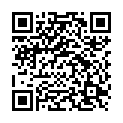|
|
|
| Module code: PIBWI24 |
|
|
2V+2P (4 hours per week) |
|
5 |
| Semester: according to optional course list |
| Mandatory course: no |
Language of instruction:
German |
Assessment:
Project work
[updated 19.02.2018]
|
KI581 (P221-0081) Computer Science and Communication Systems, Bachelor, ASPO 01.10.2014
, semester 5, optional course, technical, course inactive since 31.03.2024
KIB-IJA1 (P221-0081) Computer Science and Communication Systems, Bachelor, ASPO 01.10.2021
, semester 5, optional course, technical, course inactive since 31.03.2024
KIB-IJA1 (P221-0081) Computer Science and Communication Systems, Bachelor, ASPO 01.10.2022
, semester 5, optional course, technical, course inactive since 31.03.2024
PIBWI24 (P221-0081) Applied Informatics, Bachelor, ASPO 01.10.2011
, optional course, informatics specific, course inactive since 31.03.2024
PIB-IJA1 (P221-0081) Applied Informatics, Bachelor, ASPO 01.10.2022
, semester 5, optional course, informatics specific, course inactive since 31.03.2024
PIB-IJA1 (P221-0081) Applied Informatics, Bachelor, SO 01.10.2026
, semester 5, optional course, informatics specific, course inactive since 31.03.2024
|
60 class hours (= 45 clock hours) over a 15-week period.
The total student study time is 150 hours (equivalent to 5 ECTS credits).
There are therefore 105 hours available for class preparation and follow-up work and exam preparation.
|
Recommended prerequisites (modules):
PIB120 Programming 1
PIB210 Programming 2
PIB330 Databases
[updated 10.02.2017]
|
Recommended as prerequisite for:
PIBWI21 Internet Development with Java 2
[updated 03.08.2017]
|
Module coordinator:
Dipl.-Inf. Christopher Olbertz |
Lecturer: Dipl.-Inf. Christopher Olbertz
[updated 18.07.2016]
|
Lab:
Technical Systems Lab (8207)
|
Learning outcomes:
After successfully completing this course, students will:
- be able to manage, modularize and document a project with Maven.
- understand the Java configuration of Spring.
- be able to use SpringBoot for their own web applications.
- be able to write a Java application with JSPs.
- understand the life cycle of JSF and can apply it to their own programs.
- be capable of developing and running a JSF-based application.
[updated 19.02.2018]
|
Module content:
The lecture offers an introduction to modern Java technologies for the development of dynamic websites. Stand-alone programs are developed on a SpringBoot basis with an integrated web server. However, all technologies also work on a common server such as GlassFish. The main focus of the lecture is on JavaServer Faces.
1. Basic terms from the field of web development
2. Maven
2.1. Principles of Maven
2.2. Modularization with Maven
2.3. Profiles
2.4. Documentation with Maven
3. Spring and SpringBoot
3.1. Introduction to Spring and SpringBoot
3.2. Java configuration of Spring
3.3. Advanced Springboot configuration
4. JavaServer Pages (JSP)
4.1. Short introduction to servlets
4.2. JSP
5. JavaServer Faces
5.1. The concept of JavaServer Faces and the lifecycle of JSF pages
5.2. Portlets with JavaServer Faces
5.3. ManagedBeans as an interface between Java and websites
5.4. Event handling in JSF
5.5. Validation with JSF
5.6. JSF Ajax library
5.7. Introduction to PrimeFaces
5.8. The JSF template mechanism
5.9. Developing your own components
5.10. Running JSF applications with SpringBoot
5.11. Running JSF applications with a GlassFish server
[updated 19.02.2018]
|
Teaching methods/Media:
Transparencies with notes, exercises, Kahoot quiz
[updated 19.02.2018]
|
Recommended or required reading:
Martin Spiller: Maven 3 - Konfigurationsmanagement mit Java
Andy Bosch: Portlets und JavaServer Faces
Burns Schalk: JavaServer Faces 2.0
Bernd Müller: JavaServer Faces 2.0
[updated 19.02.2018]
|
Module offered in:
WS 2018/19,
WS 2017/18,
WS 2016/17
|


